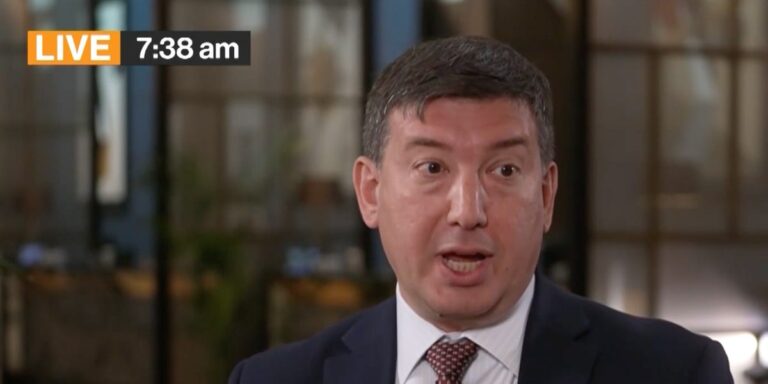- Apollo’s Scott Kleinman warned of a “drought” for investors as friendlier-era deals unwind.
- Management will need to adjust financial projections from transactions made during the zero interest rate era.
- Investors want to get their money back, but managers often don’t want to sell at a discount.
A leading private equity executive warned that investors are in for a “fairly downturn over the next few years.”
“I’m here to tell you that not everything is going to be OK,” Scott Kleinman, co-president of Apollo Global Management, said during a session at the SuperReturn International conference in Berlin on Wednesday.
Management will need to adjust financial forecasts for deals that were made in a looser, zero-interest-rate world, when financing was cheap and consumers were spending more.
“It’s going to be a little tougher for private equity firms to get the kind of returns they’ve come to expect compared to the past few years,” Kleinman told Bloomberg Television on the sidelines of the conference.
With initial public offerings uncertain in the public markets and debt costs more for potential private buyers than they were a few years ago, some fund managers are having to think creatively about how to get such deals done.
Private equity firms can’t hold onto their investments forever: fund agreements typically limit their involvement, from fundraising to buying to selling, to around 10 years, though it’s becoming increasingly common for investors to agree to extend the life of a fund.
Investors don’t want their money tied up for long periods of time because they can’t reinvest it. At every stage of investment, from venture capital startups to later-stage private equity companies, investors are desperate to get their money back, but management doesn’t want to sell at what they perceive as a discount to the value of their investment.
“Ultimately, sponsors will have to accept that the valuation environment is declining and start selling companies,” Kleinman said.
Apollo, long known for investing in distressed debt, is ready to invest. The firm had $65 billion in spare capacity at the end of the first quarter. Overall, the firm manages more than $670 billion.

